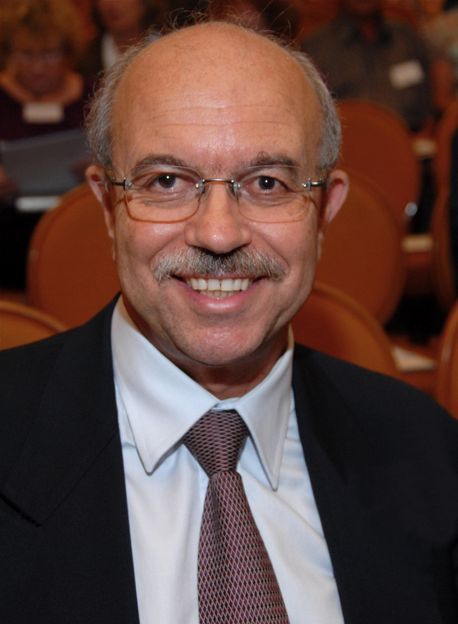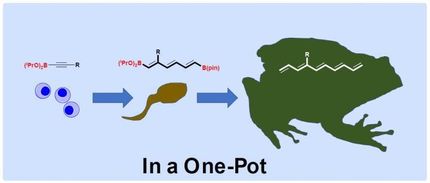Rice University's K.C. Nicolaou wins prestigious Wolf Prize in Chemistry
Rice University organic chemist K.C. Nicolaou has won the Wolf Prize in Chemistry, a prestigious international award that is often a harbinger of future recognition by the Nobel Committee.

This is K.C. Nicolaou
Rice University
Nicolaou, Rice's Harry C. and Olga K. Wiess Chair of Chemistry, and Harvard chemist Stuart Schreiber were announced this week by the Wolf Foundation in Israel as co-winners of the 2016 Wolf Prize in Chemistry. Eleven of the 46 previous winners of the prize have gone on to win Nobel Prizes in chemistry.
"I feel humbled and deeply honored and short for words to express my gratitude and thanks to my family, my students and my colleagues and friends at Rice for their support," Nicolaou said.
Nicolaou, Schreiber and five scientists and researchers who won 2016 Wolf Prizes in other fields will share a $500,000 prize. The 2016 Wolf Prizes will be presented by Israeli President Reuven Rivlin in June at an official ceremony at the Knesset in Jerusalem.
In announcing the prizes this week, the foundation recognized Nicolaou "for advancing the field of chemical synthesis to the extremes of molecular complexity, linking structure and function and expanding our dominion over the interface of chemistry, biology and medicine."
Past winners of the Wolf Prize in Chemistry include Nicolaou's postdoctoral mentor, E.J. Corey, who went on to Nobel recognition.
Nicolaou joined Rice's faculty in 2013. His specialty is total synthesis, an area of organic chemistry dedicated to the complete synthesis of nature's most complex molecules. Nicolaou has authored or co-authored five books and more than 770 peer-reviewed publications and holds 68 patents. His research has been cited more than 55,000 times.
He is best known for publishing the first complete synthetic pathway to the natural substance taxol. Marketed as the chemotherapeutic drug paclitaxel, taxol is used to treat ovarian, breast, lung, pancreatic and other cancers and is on the World Health Organization's List of Essential Medicines.
Since joining Rice's faculty at the BioScience Research Collaborative, Nicolaou and colleagues have achieved total syntheses of two complex antibiotics, viridicatumtoxin B and CJ-16,264, and several potential cancer-fighting agents, including shishijimicin A and trioxacarcins A, B and C. He has also developed a practical method for the synthesis of chemical building blocks that are widely used in drug discovery research and in the manufacture of drugs and dyes.
Nicolaou's many honors include the Benjamin Franklin Medal in Chemistry, the Arthur C. Cope Award and the Linus Pauling Medal. He is a fellow or foreign member of more than 20 academic academies and societies, including the National Academy of Sciences, the American Academy of Arts and Sciences, the American Philosophical Society and the Royal Society of London, and was awarded an Einstein Professorship by the Chinese Academy of Sciences.
Other news from the department people
Most read news
More news from our other portals
See the theme worlds for related content
Topic world Synthesis
Chemical synthesis is at the heart of modern chemistry and enables the targeted production of molecules with specific properties. By combining starting materials in defined reaction conditions, chemists can create a wide range of compounds, from simple molecules to complex active ingredients.

Topic world Synthesis
Chemical synthesis is at the heart of modern chemistry and enables the targeted production of molecules with specific properties. By combining starting materials in defined reaction conditions, chemists can create a wide range of compounds, from simple molecules to complex active ingredients.































































